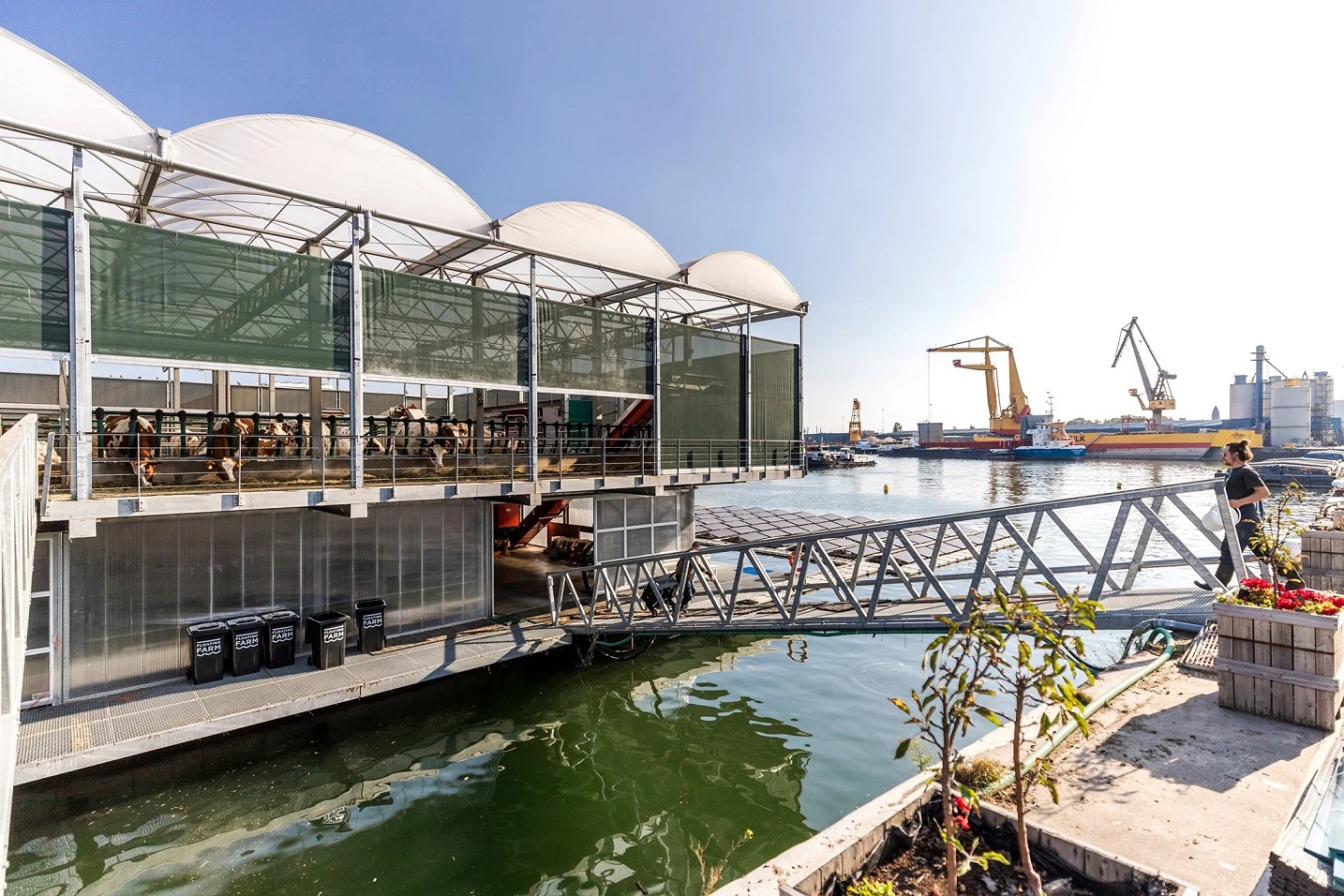Aramco Europe bolsters innovation and the circular economy by supporting the world’s first Floating Farm in Rotterdam, the Netherlands.
One farmer, 40 cows, robots to distribute cattle feed and collect manure – floating in Europe’s largest harbor. It sounds like a scene from a futuristic movie, but it’s actually the world’s first Floating Farm in Rotterdam, the Netherlands.
Aramco Europe’s citizenship program was among the donors that supported this innovative project which aligns with Aramco’s commitment to supporting innovation and the circular economy.
Grass clippings from local soccer pitches are used as part of the cows’ feed while grains from nearby bakeries and breweries are also deployed.
The dairy produced at the farm, some 760 liters of milk a day, is sold to local consumers.
Bringing agriculture close to consumers was one of the reasons to initiate this new way of farming. It helps to minimize food waste, reduces transport of food and improves the quality of the produce. They call it a ‘transfarmation’.
The Floating Farm is also used as an educational center for other farmers, consumers, schools and the innovation community to take sustainable agriculture to the next level.
What inspired this idea?
“When Hurricane Sandy hit New York in 2012, the entire city was running out of fresh food within days. Relying on thousands of food trucks every day, the food supply chain was shattered when flooding happened, and trucks could not come into the city anymore,” said Floating Farm’s CEO, Peter van Wingerden.
“During that moment, we started observing how the resiliency of major cities is increasingly threatened by long food supply chains and by the fact that production is taking place further away from consumers. We also realized that if we want to achieve long-term resilience and sustainability of all cities, big and small, we have to further explore localization,” he added.
Bobbing in the harbour
That the farm is floating on water is another ingenious idea. Agricultural land is becoming increasingly scarce, pushing the sector to search for new ways to continue feeding the growing population. As Rotterdam is located in a highly water-sensitive delta, the city has to deal with surges from the rivers, rising sea levels, and increasingly heavy rainfall, threatening future flooding. Building a floating farm means food production can continue, even during a flood. The citizenship project floats on pontoons, rising and falling with the tides.
Animal welfare is of paramount importance on the farm, so ensuring that the cows are well and comfortable in this innovative new environment is a central part of the project.
A manure robot cleans the facility continuously and the cows determine when they want to be milked by choosing to go to a milking robot. They have fresh water available 24/7 and a waterside playground that they can use whenever they please by simply walking down the gangplank.
Transfarming the rest of the world
The floating farm model is ripe for reproduction – which is exactly what the team is working on now, Van Wingerden explains. Some of his key takeaways have been practical, such as those to do with mechanics on how farm materials flow through a floating structure. These learnings will be applied to a floating vegetable farm, that soon will move into the space next to the current Floating Farm. Permit applications are also out for similar structures in Dubai, Singapore and two other Dutch cities.




